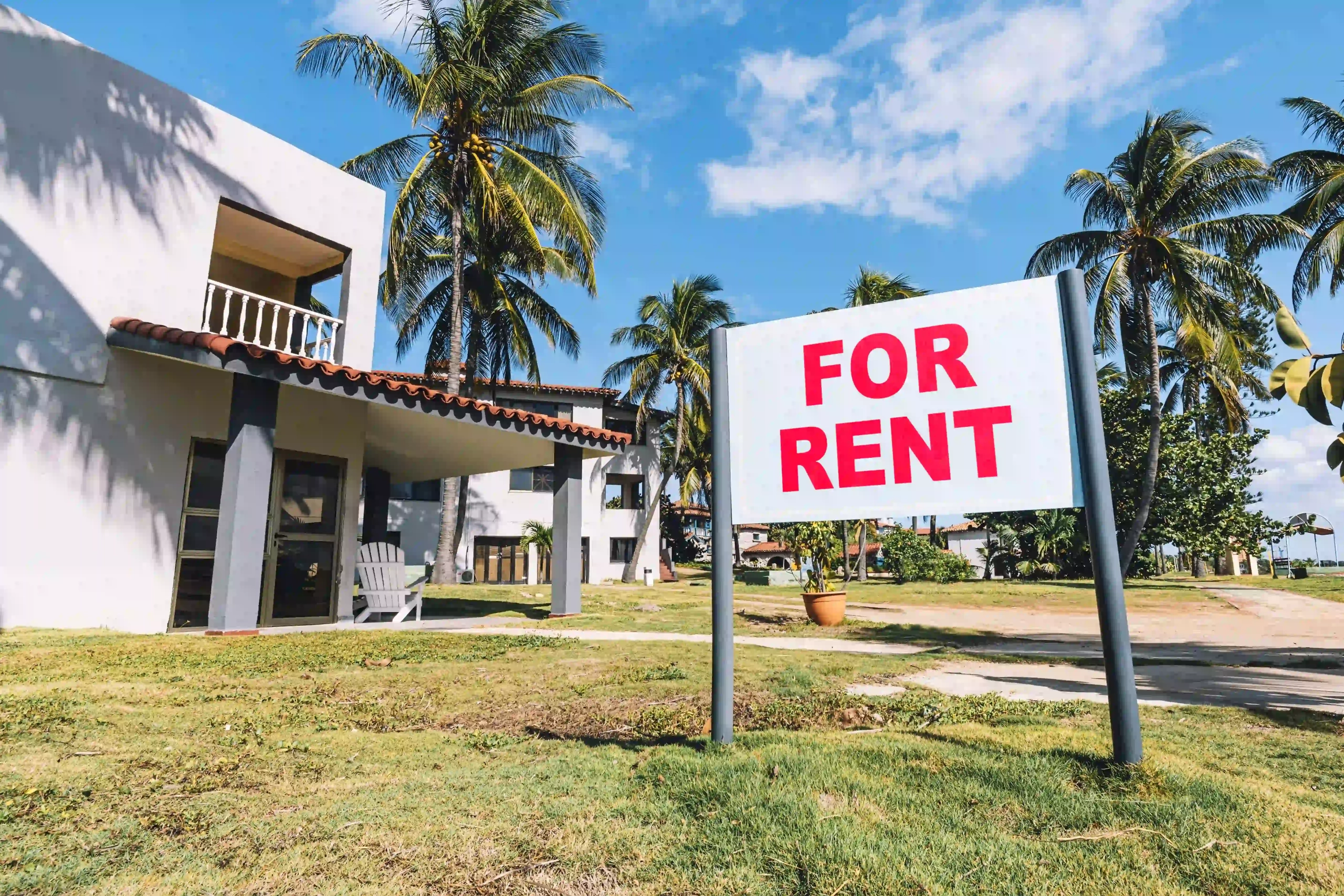Cultivating Passive Income: Rental Properties for OFWs in the Philippines

When it comes to securing financial independence, the notion of passive income is almost always at the forefront. For Overseas Filipino Workers (OFWs), establishing a steady stream of passive income becomes doubly important.
With the unique challenges they face while working abroad, having a stable source of passive revenue back home can provide both financial security and peace of mind. Among the myriad of passive income avenues available, rental properties stand out as one of the most promising. Let’s delve into the world of Rental Properties for OFWs in the Philippines.
The Philippines presents a ripe opportunity for real estate investments. The demand for housing, both for purchase and rent, has seen a consistent rise, making it a favorable market for potential landlords.
RELATED: Rental Ready: Top Interior Design Tips to Boost Property Lease Rates
Understanding the Philippine Real Estate Landscape
Before diving into the rental market, it’s essential to get acquainted with the broader real estate landscape of the country. From the bustling streets of Metro Manila to the serene beaches of Palawan, the Philippines offers a diverse range of locations suitable for property investments. The key is identifying regions with the highest growth potential and demand.

Benefits of Rental Properties for OFWs
For Overseas Filipino Workers (OFWs), the choice to invest in real estate, particularly rental properties, in their home country is not just a financial decision. It’s also deeply rooted in the socio-cultural fabric of Filipino values and aspirations. Here’s a closer look at the multifaceted benefits:
Steady Income Stream
Reliability Over Volatility
While stocks, bonds, and other financial instruments can offer significant returns, they are often subject to market fluctuations. Rental properties, in contrast, bring a predictable monthly income, ensuring OFWs have a stable cash inflow irrespective of external economic conditions.
Inflation Hedge
With the rising cost of living, rental incomes generally increase over time, allowing landlords to adjust lease amounts to match inflation rates. This means that as prices for goods and services rise, so does the rental income, ensuring real value is maintained.
Passive Yet Powerful
The beauty of rental income is its passive nature. Once the initial effort of purchasing and setting up the property is done, the consistent rental payments become a long-term revenue source, allowing OFWs to focus on their primary job or even other investments.
Appreciating Asset
Dual Revenue Stream
While the immediate benefit of a rental property is the monthly rent, there’s a long-term gain too. The underlying property often appreciates in value over time. So, not only do OFWs earn from the rent, but they also stand to gain significantly if and when they decide to sell the property.
Land Scarcity
Land is a finite resource. Especially in burgeoning urban areas in the Philippines, as demand increases and supply remains constant, the value of real estate assets is bound to rise.
Improvements and Upgrades
Over time, as landlords invest in maintaining and upgrading their properties – be it a fresh coat of paint, landscaping, or adding new amenities – the value of the property can see a substantial upward trajectory.
Emotional Security
Roots to Home
For many OFWs, being away from home is a challenging emotional journey. Owning a property in their homeland serves as a grounding anchor, a tangible connection to their roots, and a constant reminder of where they come from.
Legacy Building
Many Filipinos prioritize family above all else. Owning property is seen as a legacy, something tangible to pass down to future generations. It’s not just an asset; it’s a testament to hard work and a gift for future generations.
Planning for Return
While some OFWs choose to stay abroad indefinitely, many have plans to return home eventually. Owning a property back home is not just an investment; it’s a step towards that eventual homecoming, a space they can return to.
In essence, for OFWs, the decision to invest in rental properties in the Philippines intertwines financial acumen with deep emotional and cultural ties, making it a uniquely rewarding venture.
Spotting the Ideal Property
Location, location, location! This mantra rings true, especially in the context of rental properties. Key areas to consider include business districts, university belts, and emerging townships. Additionally, understanding the specific needs of potential tenants, such as amenities and proximity to public transport, can set your property apart.

Managing Properties Remotely
For most OFWs, the distance from their investment properties can be daunting. The logistical challenges of being in a different country or even a different time zone can seem insurmountable. However, with strategic planning and leveraging modern solutions, these challenges can be successfully navigated.
Hiring a Property Manager
Expertise at Your Service
Property managers come with a wealth of knowledge about the local real estate market. They can handle tenant screenings, rent collections, and routine maintenance, ensuring the property remains in top shape and generates consistent revenue.
Conflict Resolution
In case of disputes or misunderstandings with tenants, a property manager acts as an intermediary, resolving issues professionally, thus safeguarding the landlord’s interests.
Periodic Inspections
Even in the owner’s absence, property managers conduct regular inspections to ensure that the property is well-maintained and any damage or issues are addressed promptly.
Leveraging Technology
Property Management Software
Numerous platforms today allow landlords to track rent payments, monitor maintenance requests, and communicate with tenants seamlessly, irrespective of where they are in the world.
Virtual Tours
For new potential tenants, virtual tours can be organized, allowing landlords to showcase their property without being physically present.
Automated Alerts
Modern systems can send notifications for due rents, maintenance schedules, or lease renewals, ensuring landlords stay informed and proactive.
Rental Pricing Strategies
Determining the right rent for a property is both an art and a science. It requires a keen understanding of the market, the property’s unique selling points, and flexibility to adjust based on prevailing conditions.
Researching Comparable Properties
Market Analysis
Before setting a price, it’s essential to analyze similar properties in the vicinity. This gives an understanding of the ongoing rates and helps in benchmarking the property’s rent competitively.
Adjustments for Unique Features
If the property boasts unique features like a swimming pool, a renovated kitchen, or proximity to key amenities, the rent can be priced slightly higher.
Adjusting for Market Conditions
Seasonal Variations
There may be seasons when the demand for rental properties surges. Recognizing these patterns and adjusting prices can lead to higher returns.
Economic Factors
Economic downturns or local industry shifts can impact rental rates. Being flexible and adjusting prices based on broader economic indicators can ensure continuous occupancy.
Handling Legalities and Documentation
Legal intricacies can often be overwhelming, but they form the backbone of any rental arrangement. Ensuring that everything is above board protects landlords from potential pitfalls and disputes.

Drafting a Robust Rental Agreement
Clear Terms
The rental agreement should clearly outline terms like rent amount, payment dates, maintenance responsibilities, and conditions for lease termination.
Inclusion of Clauses
Consider including clauses related to property damage, late payment penalties, and conflict resolution mechanisms.
Rights and Responsibilities of Landlords
Understanding One’s Position
It’s essential for landlords to know what they can and cannot do. For instance, there might be stipulations about how much notice is required before inspecting a tenant-occupied property.
Seeking Legal Counsel
When in doubt, consulting with a legal expert can provide clarity and direction, ensuring that landlords operate within the confines of the law.
Dealing with Challenges
Embarking on the journey of rental property investment is exciting, but it’s not without hurdles. Just as with any business, challenges will arise. The key to success lies in anticipation, preparation, and effective response.
Vacancies
Anticipate and Plan
Periods of vacancy are inevitable. Saving a portion of the rental income during occupied months can provide a buffer for these lean periods.
Effective Marketing
Engage in active advertising and marketing. Digital platforms, local newspapers, and real estate agents can aid in finding tenants faster.
Competitive Pricing
In prolonged vacancies, consider adjusting the rent. Competitive pricing, even if it’s slightly below market rate, can attract tenants.
Maintenance Costs
Regular Check-ups
Preventive maintenance, like routine inspections and servicing of appliances, can prevent larger, costlier breakdowns in the future.
Emergency Fund
Allocate a portion of the rental income towards an emergency fund. This can cover unexpected repair costs without affecting profitability.
Tenant Screening
A thorough tenant screening process can ensure that you rent out to individuals who respect the property and reduce wear and tear.
Tenant Disputes
Clear Communication
Many disputes arise from misunderstandings. Regular communication and ensuring that all terms are understood can minimize conflicts.
Mediation
If a dispute does arise, consider mediation. Third-party mediators can help in finding a middle ground.
Legal Clarity
Ensure that the rental agreement is legally sound, specifying the obligations of all parties. This can serve as a reference in case of disagreements.
Diversifying Your Property Portfolio
While the age-old adage ‘don’t put all your eggs in one basket’ might sound clichéd, it holds true in real estate investments. Diversification can be a shield against market volatilities.
Types of Properties
Residential vs. Commercial
While residential properties offer consistent returns, commercial properties can provide higher rents and longer lease terms.
Urban vs. Suburban
Urban properties might fetch higher rents due to demand, but suburban properties can offer stability and larger spaces.
New Developments vs. Older Properties
Investing in both can balance out the portfolio. New properties might have modern amenities, but older properties can come at a lower purchase price with potential for value appreciation after renovations.
Rental Properties for OFWs is more than just an investment strategy; it’s a journey towards financial independence and emotional security.
By understanding the market, building the right strategies, and preparing for potential challenges, OFWs can unlock a world of opportunities and secure their future. After all, home is where the heart is, and what’s better than making your heart’s abode a source of prosperity?
FAQs
What are the tax implications for OFWs earning rental income?
OFWs, like any property owner in the Philippines, are subject to income tax on their rental earnings. However, they might be eligible for certain exemptions or deductions. Consulting with a local tax expert is advised.
How can OFWs ensure their properties are safe while they’re abroad?
Hiring a property manager or engaging with a trusted family member or friend to oversee the property can enhance safety. Additionally, investing in security measures like surveillance cameras can be beneficial.
Is it better to buy a new property or an older one for rental purposes?
Both have their pros and cons. While newer properties might attract more tenants due to modern amenities, older properties can be acquired at a lower cost, potentially offering higher returns.
Can OFWs avail loans in the Philippines for buying rental properties?
Yes, many Philippine banks offer housing loans for OFWs. However, the requirements and interest rates might vary, so it’s essential to shop around.
How frequently should the rental price be revised?
Typically, landlords review and adjust rental prices annually. However, it’s vital to strike a balance to ensure the property remains competitive while also maximizing income.
What happens if a tenant fails to pay the rent?
The rental agreement should outline the steps to be taken in case of non-payment. This might include late fees, notice periods, and potential eviction procedures.
Read more here: AllProperties Latest Blogs




